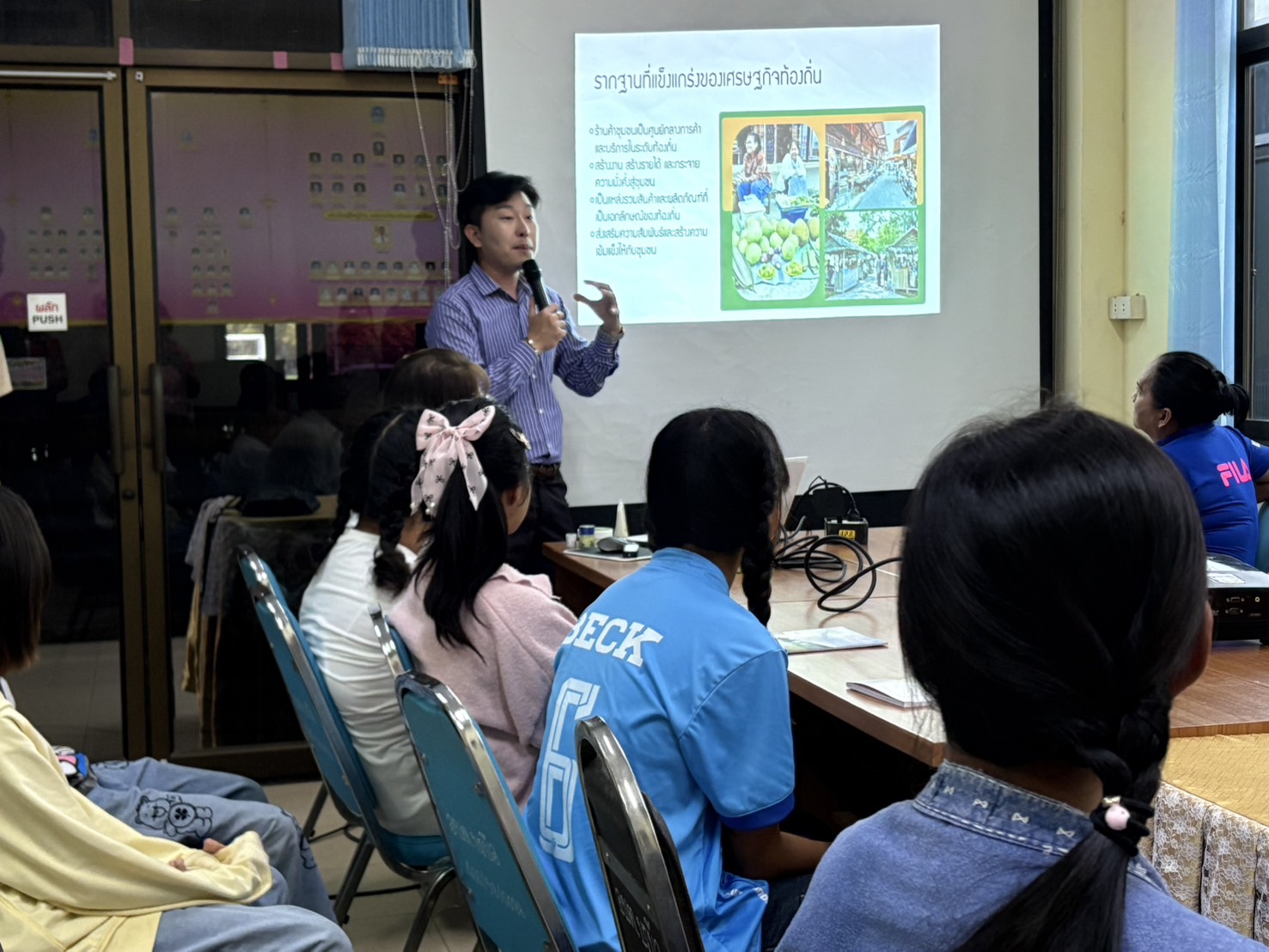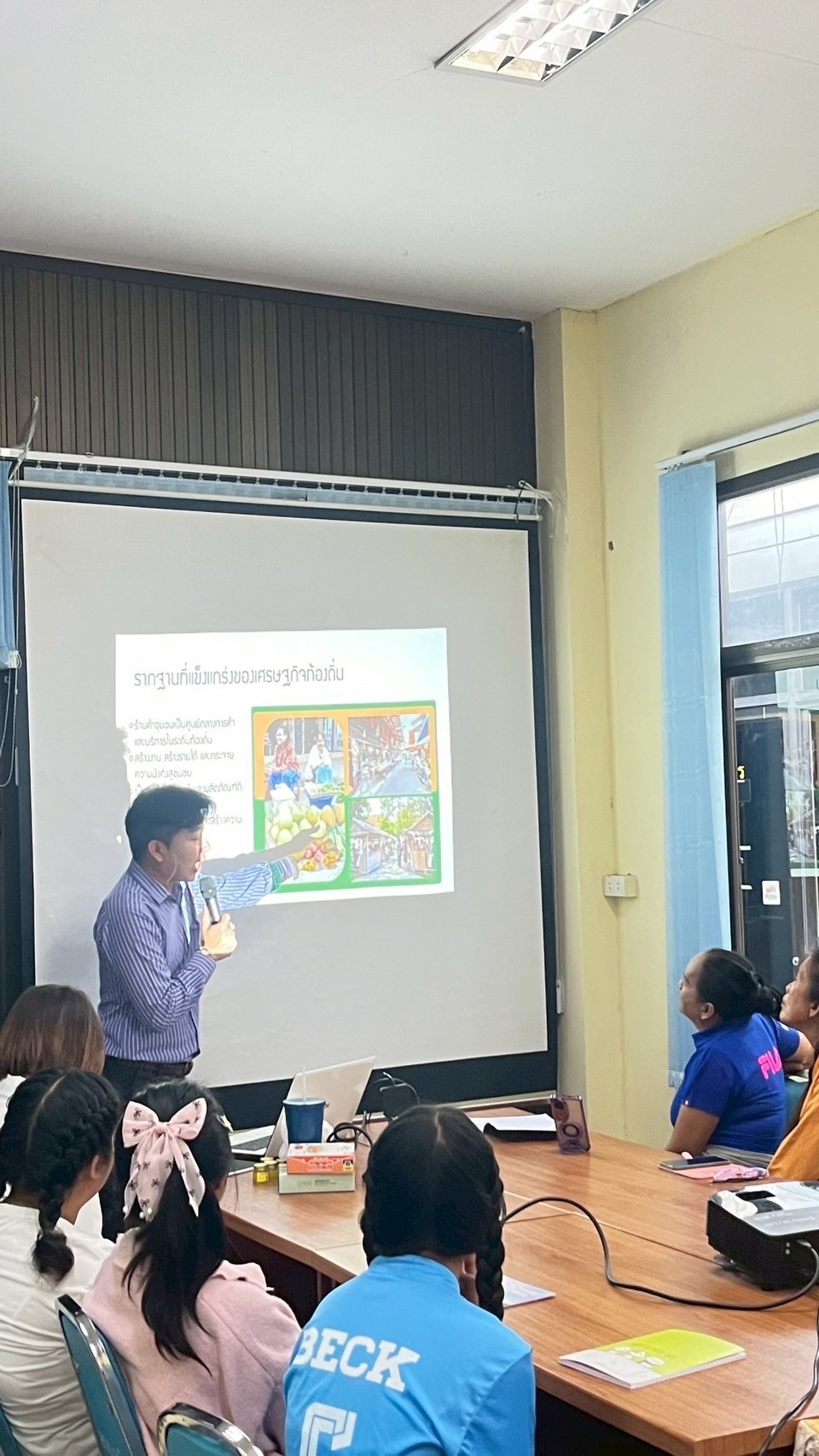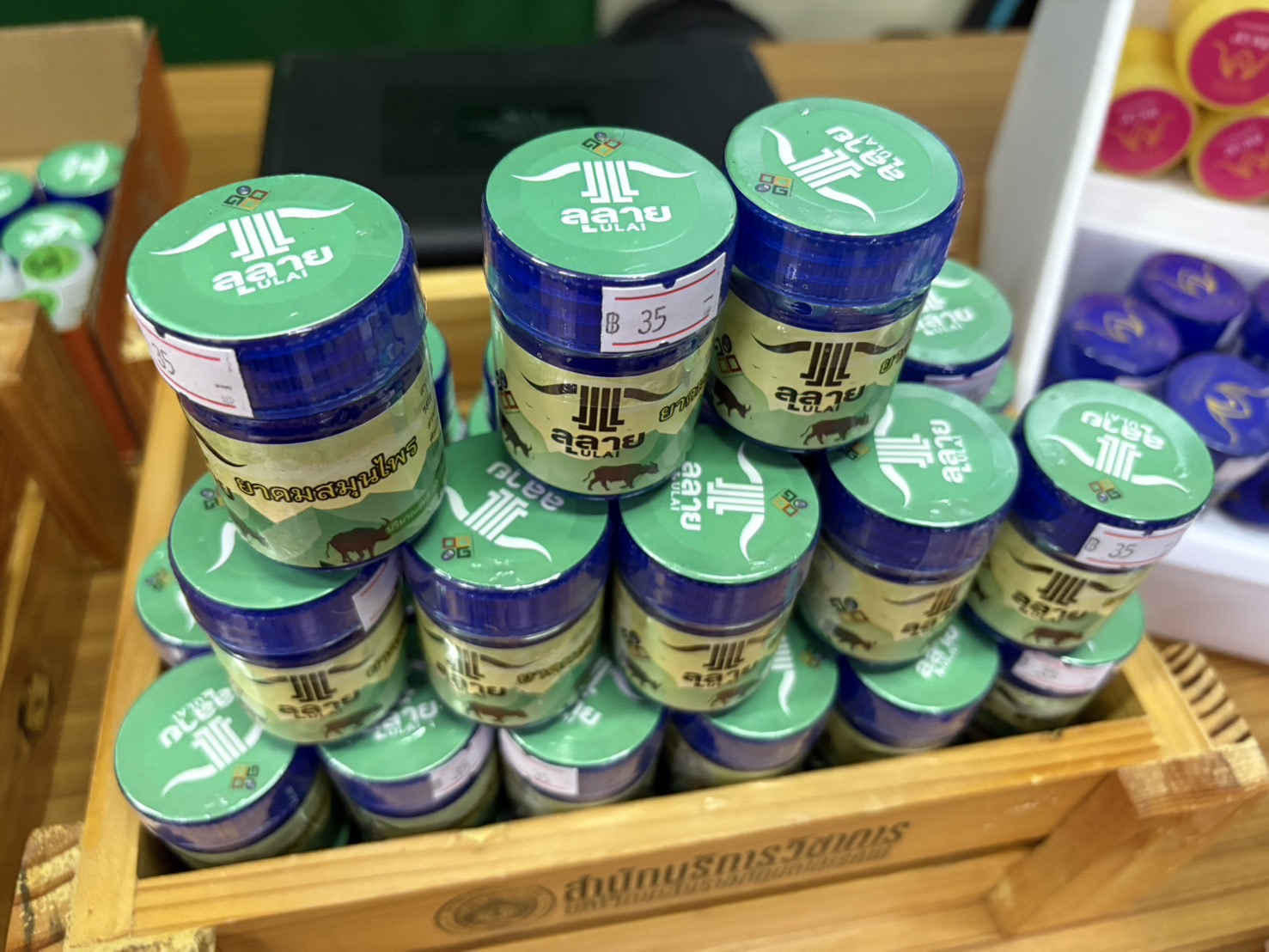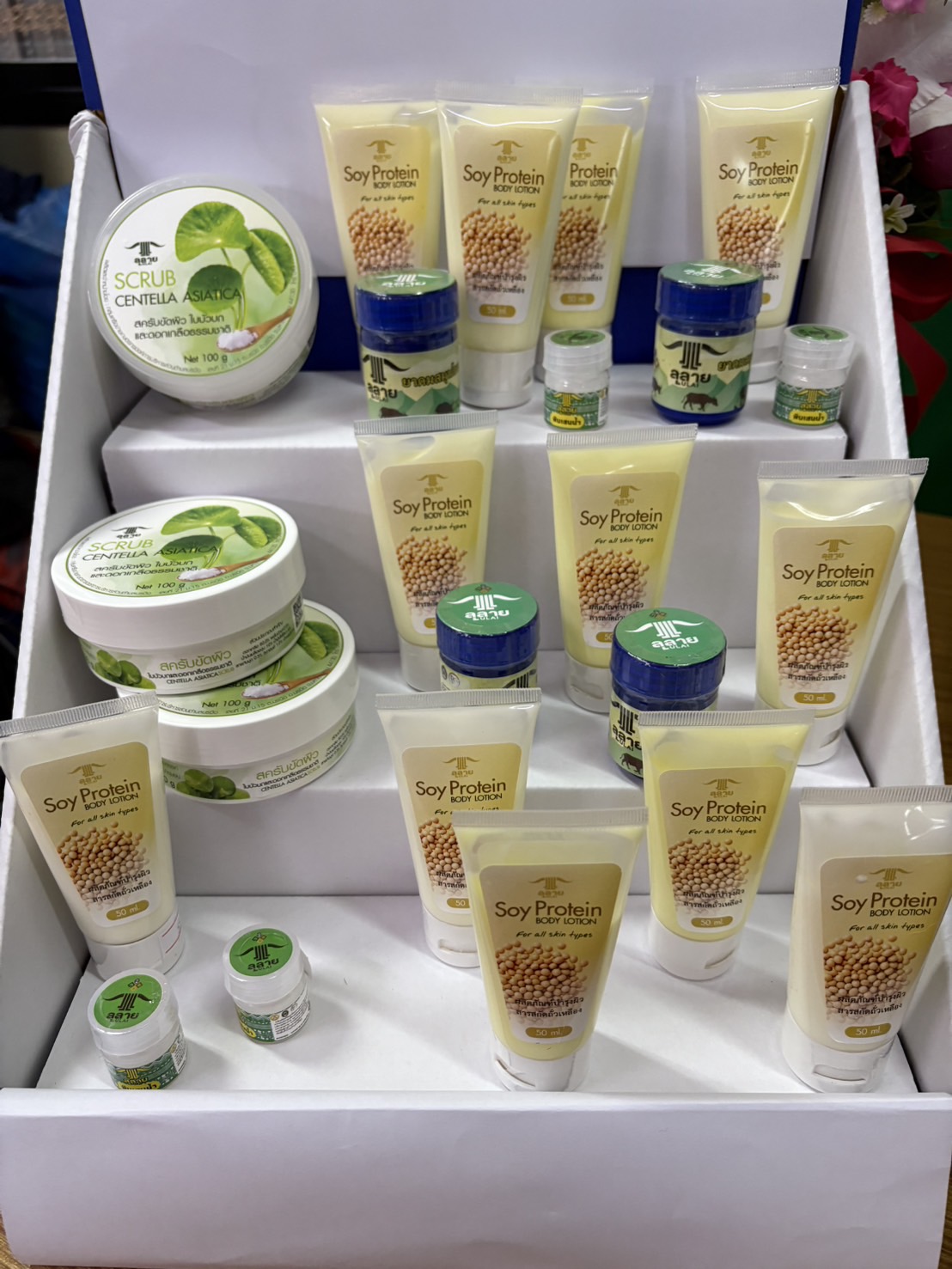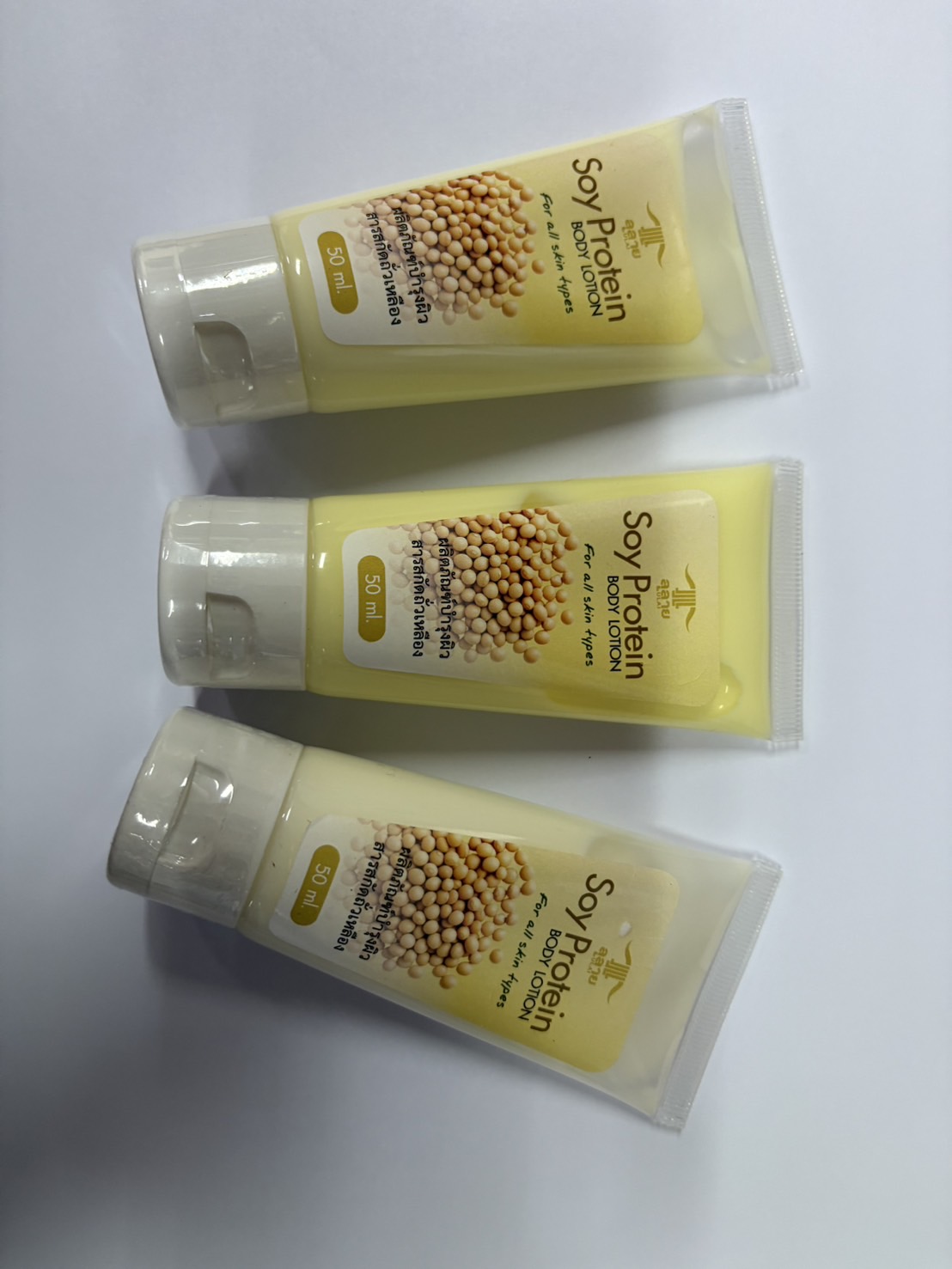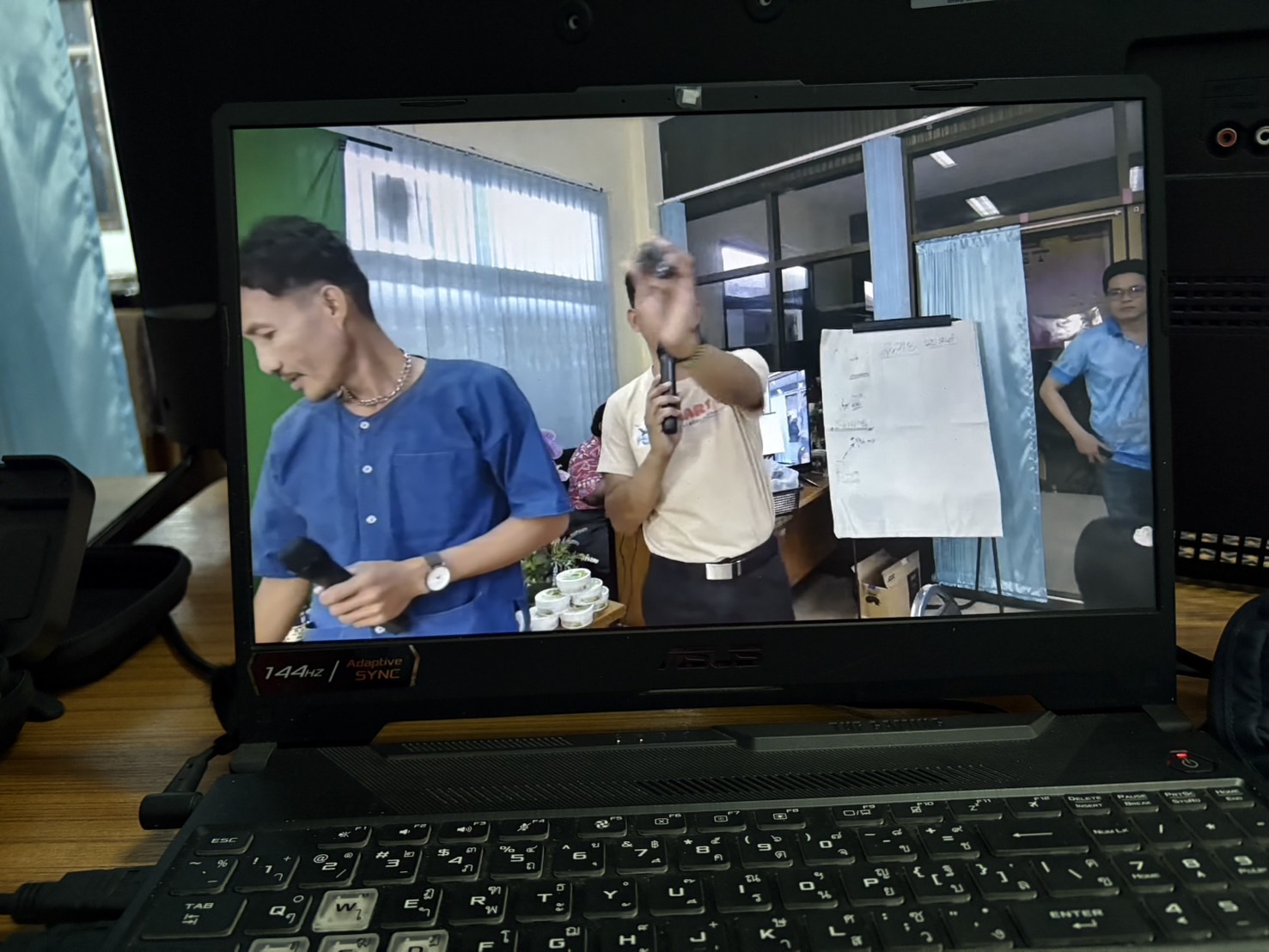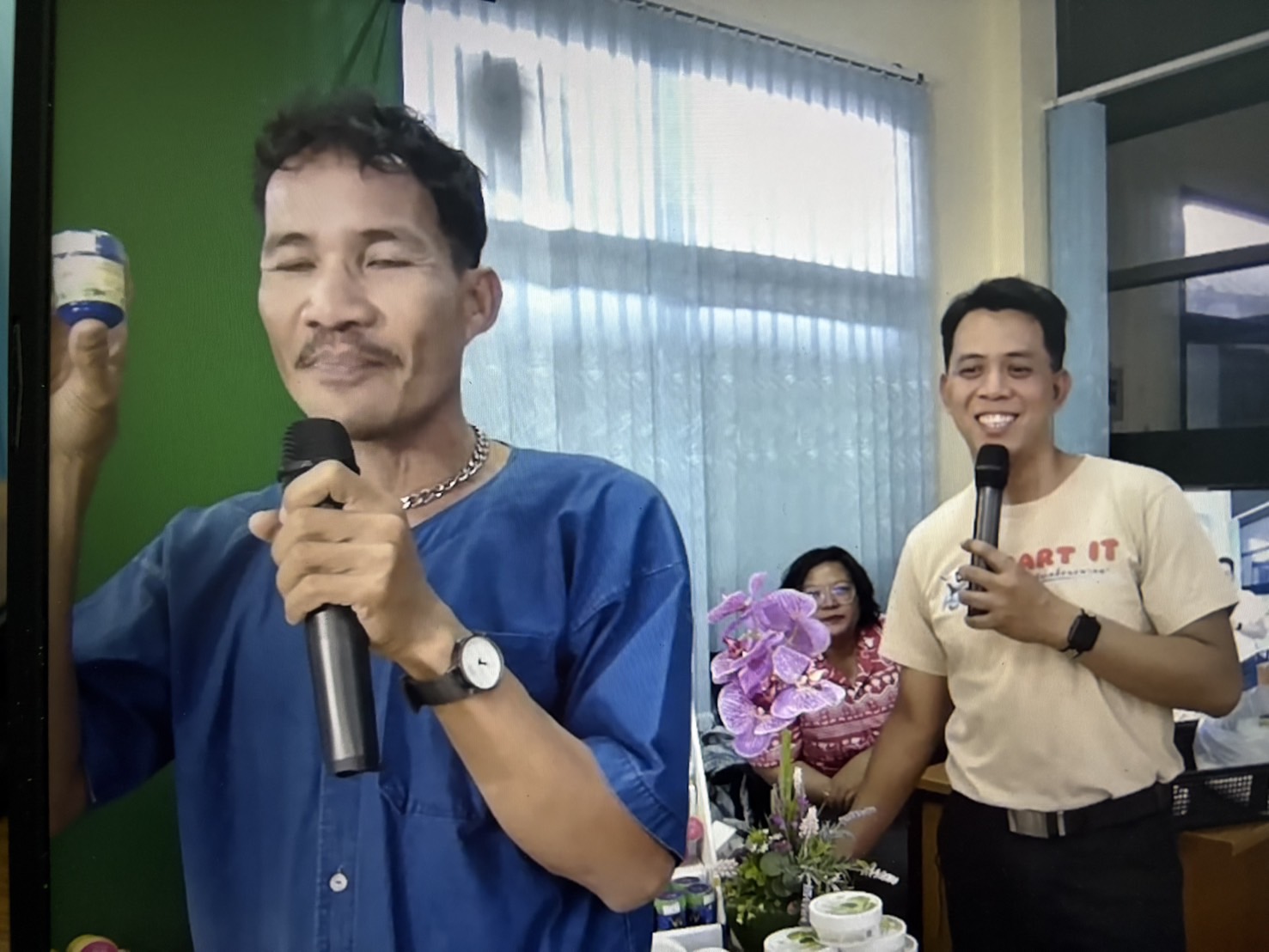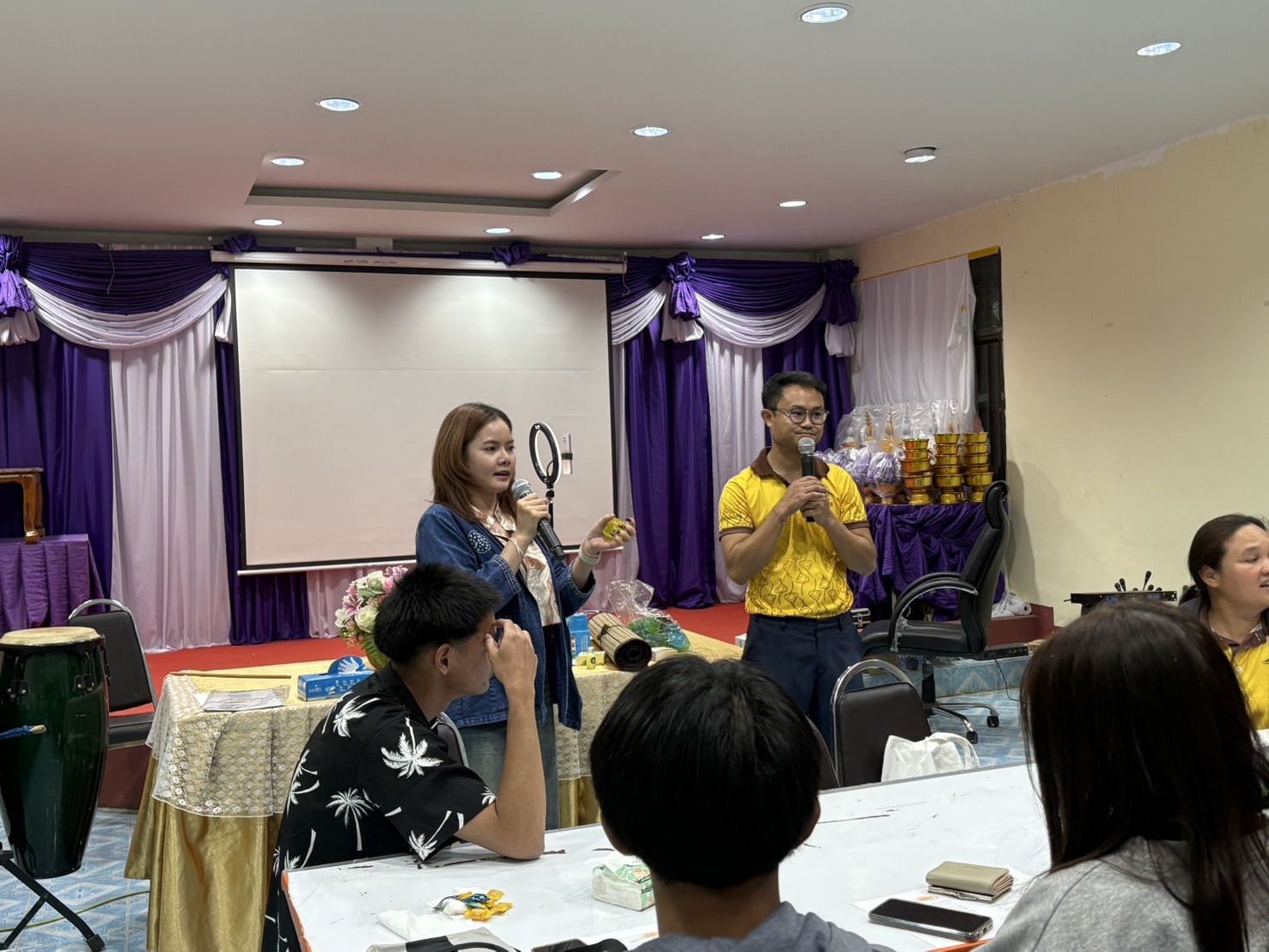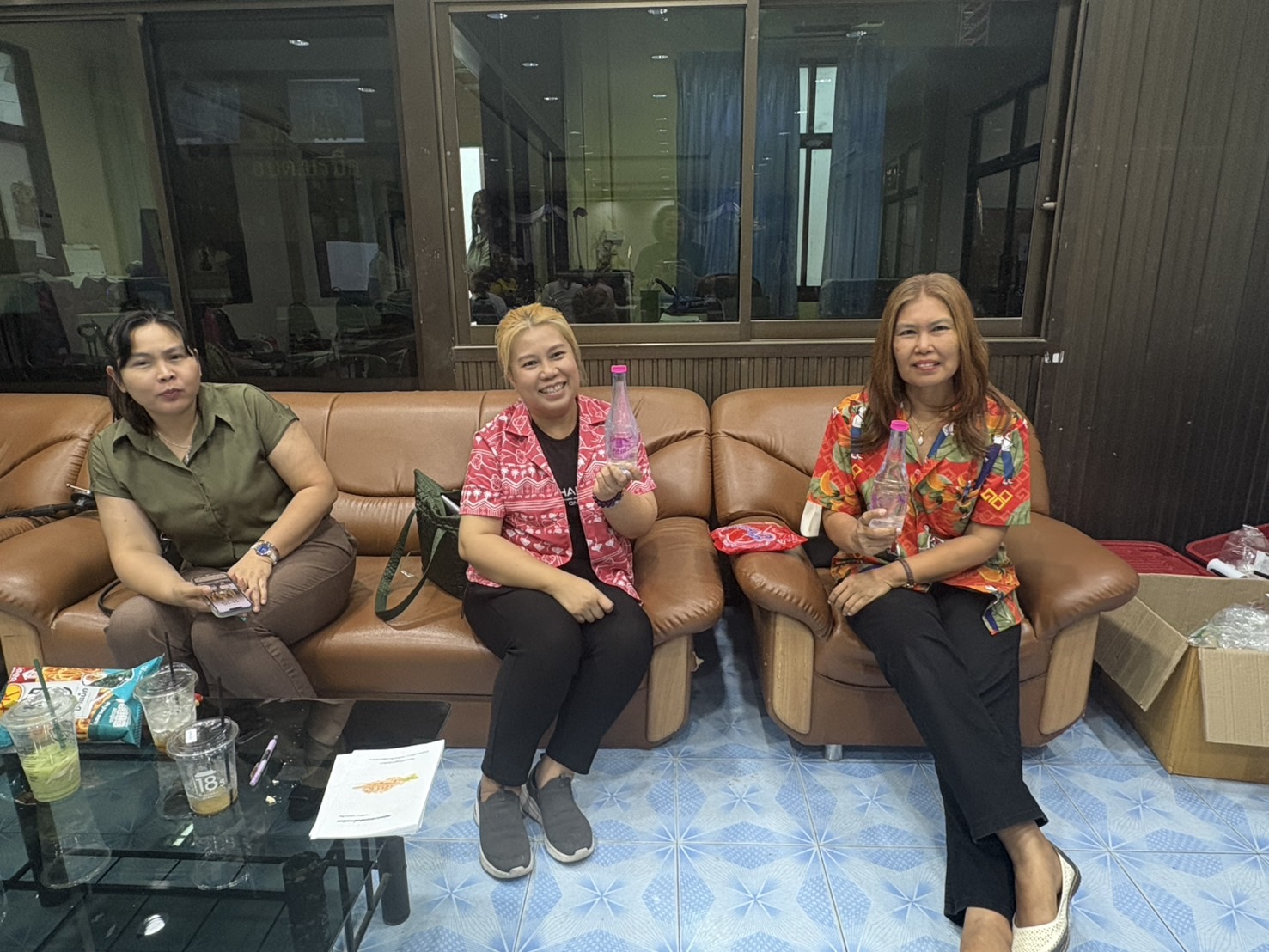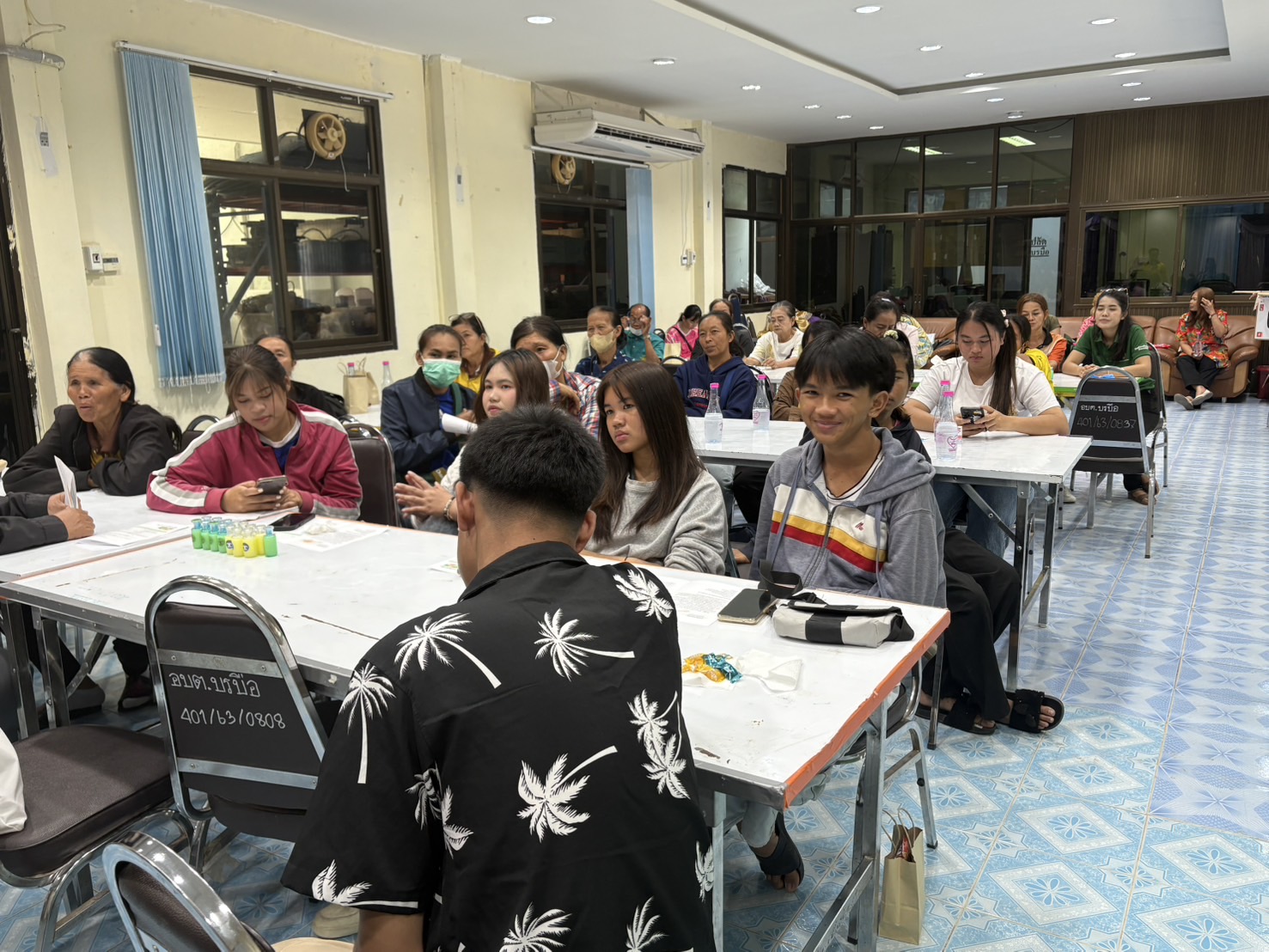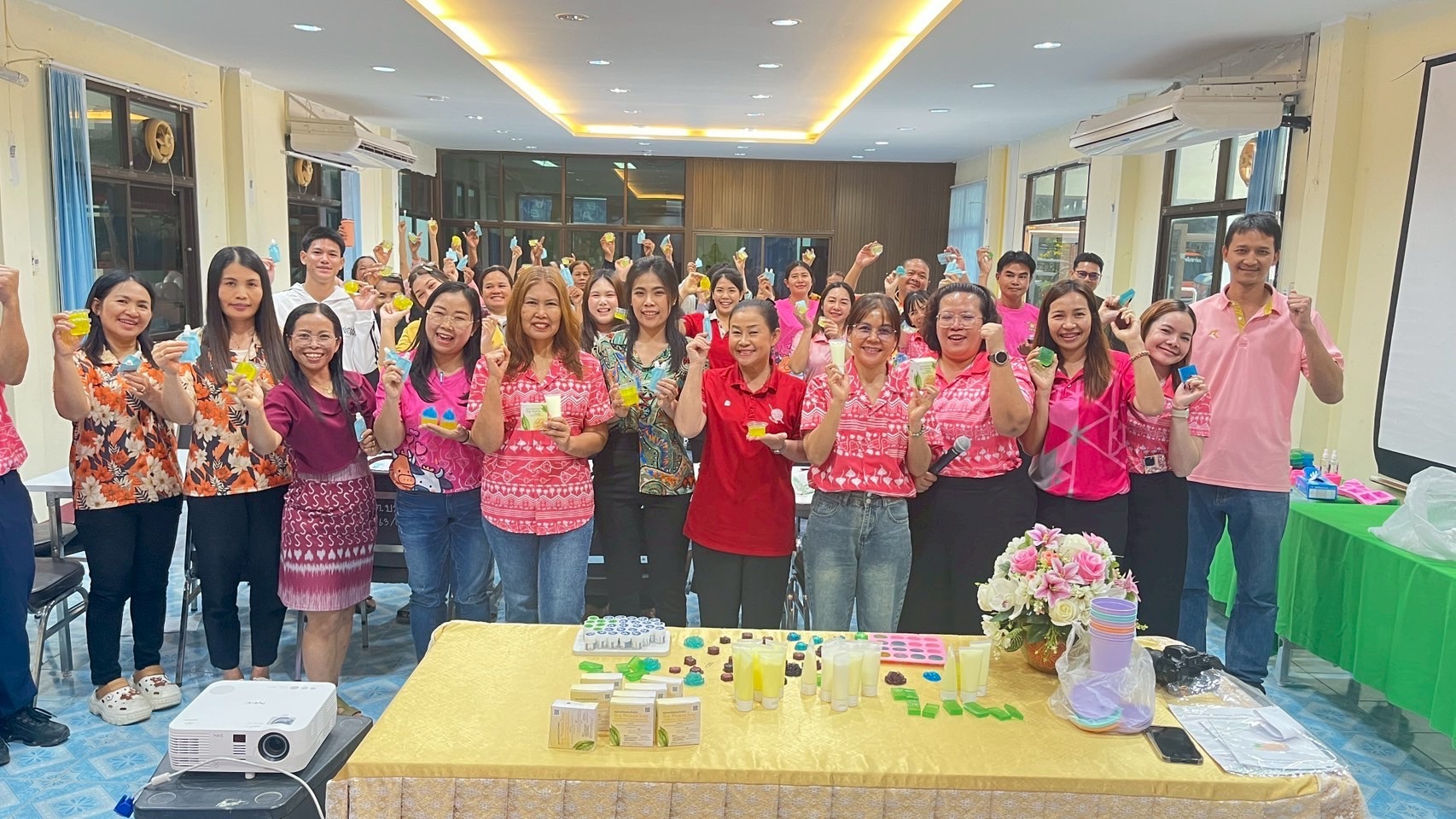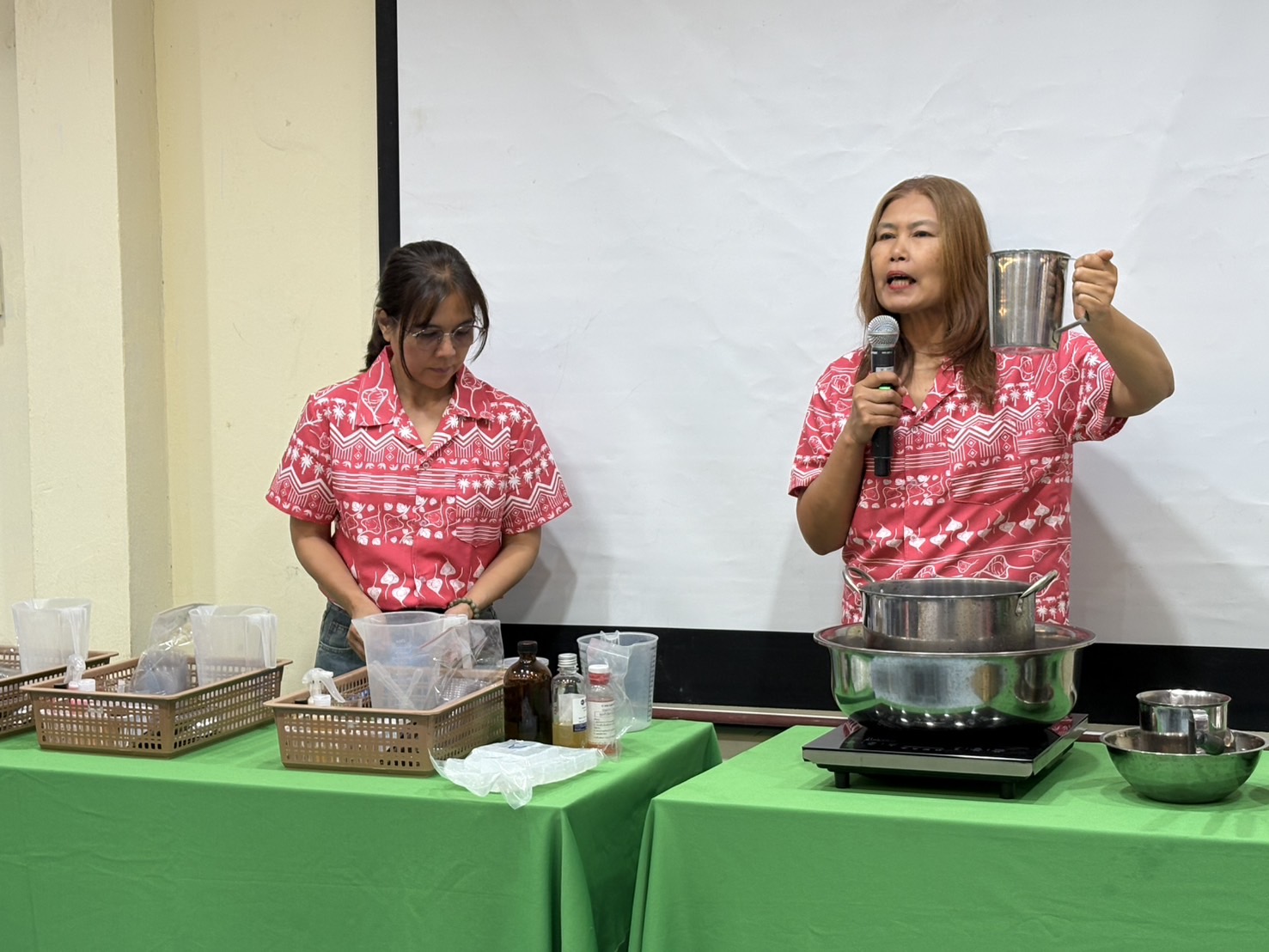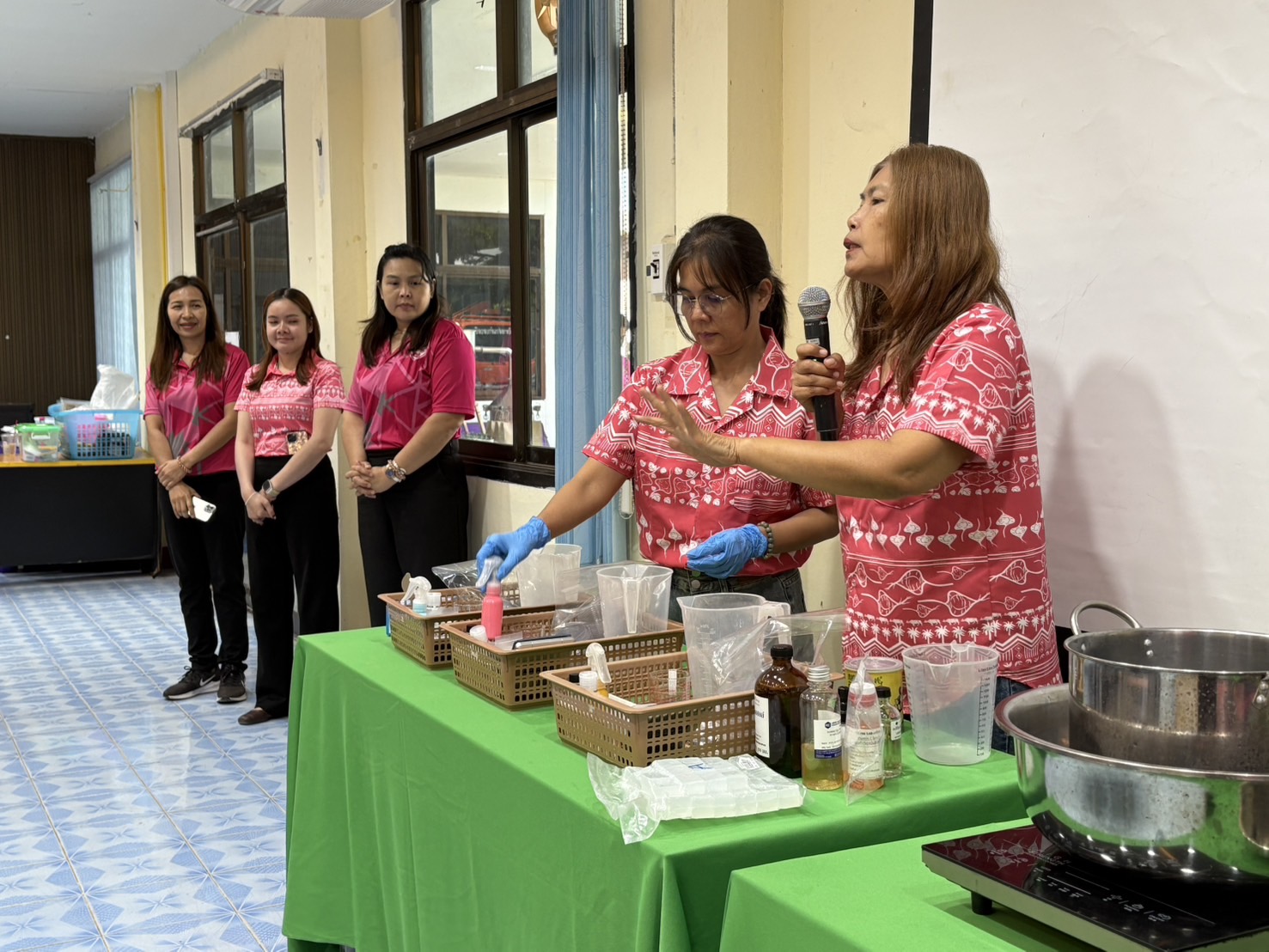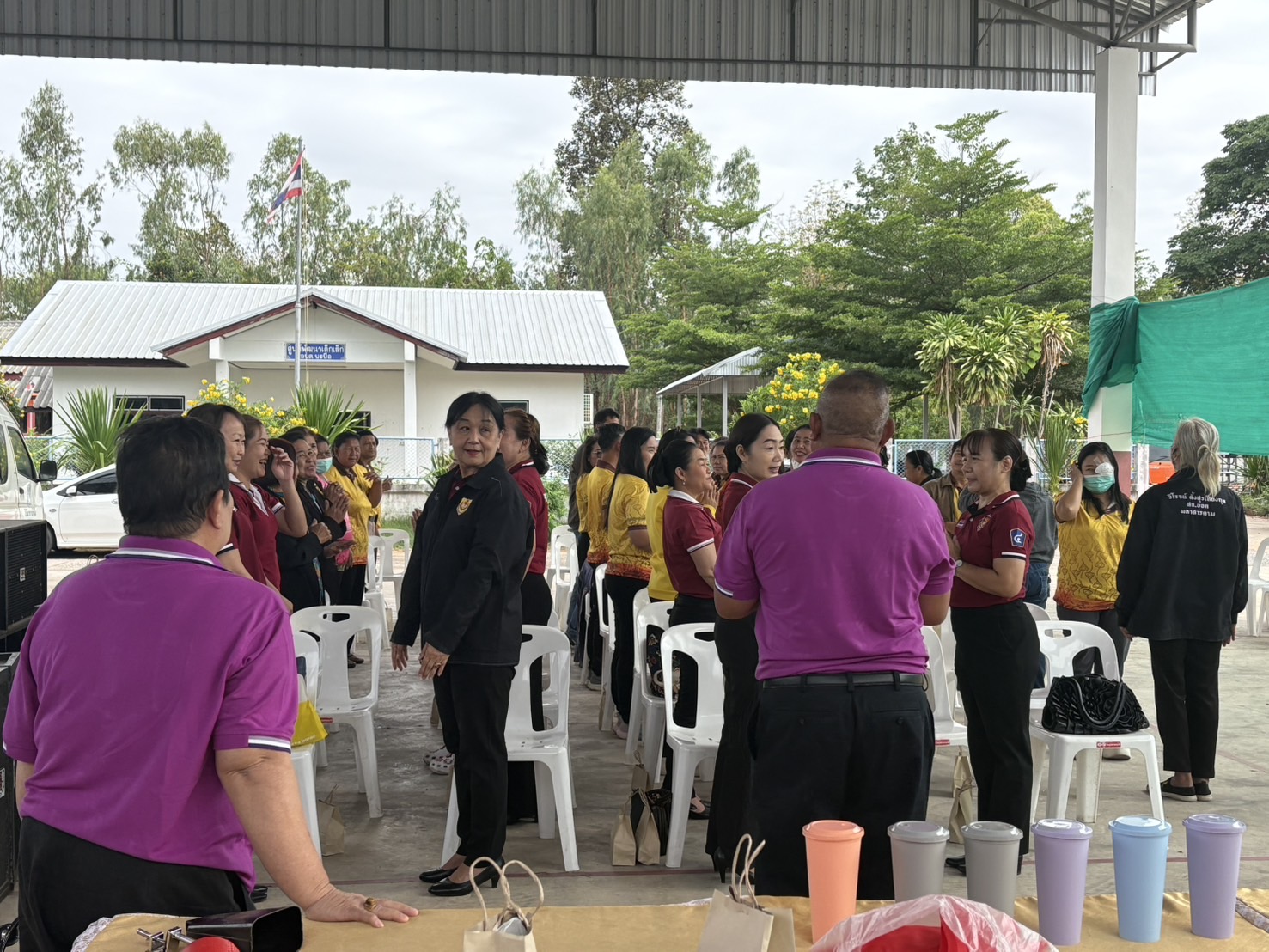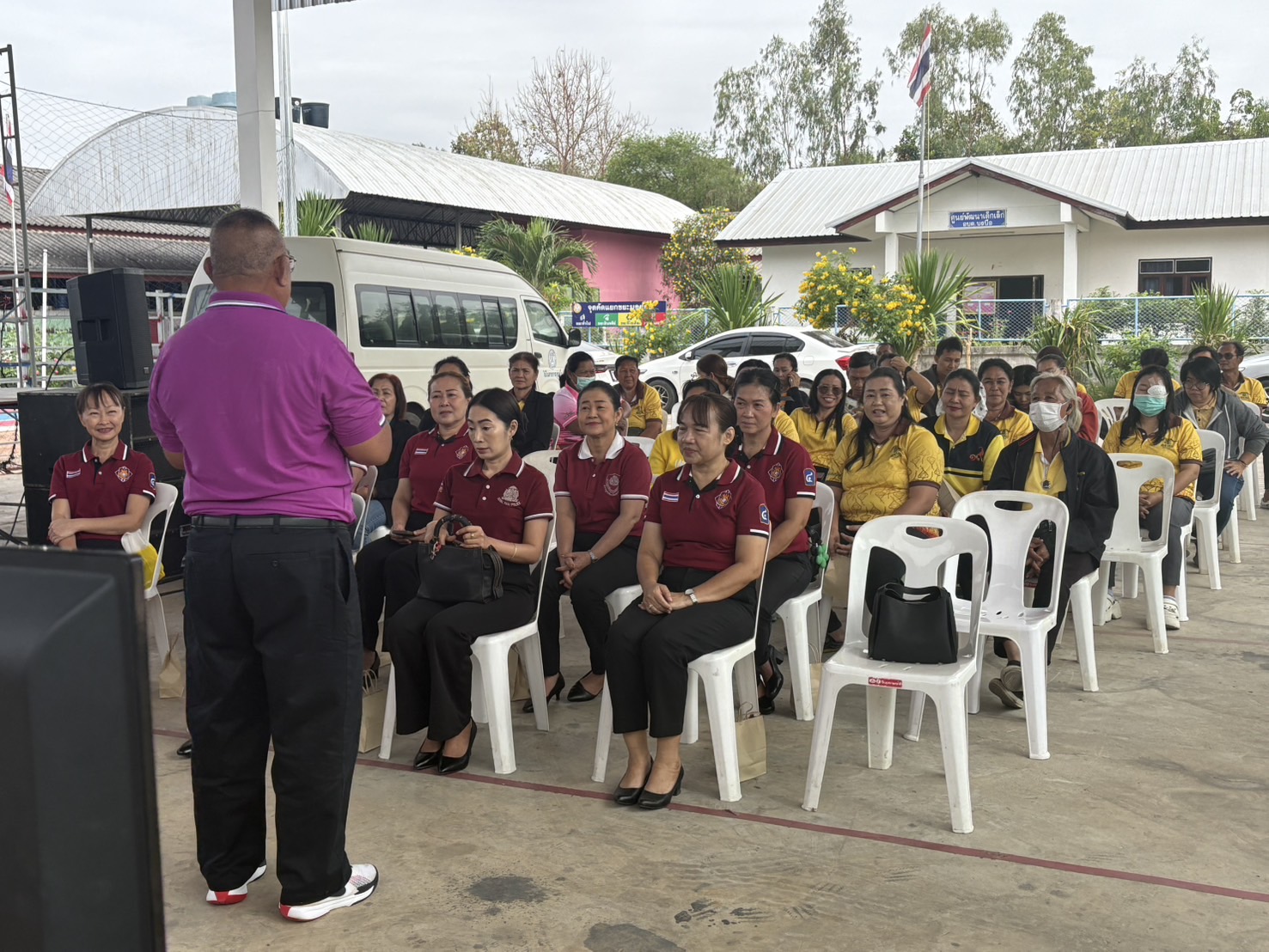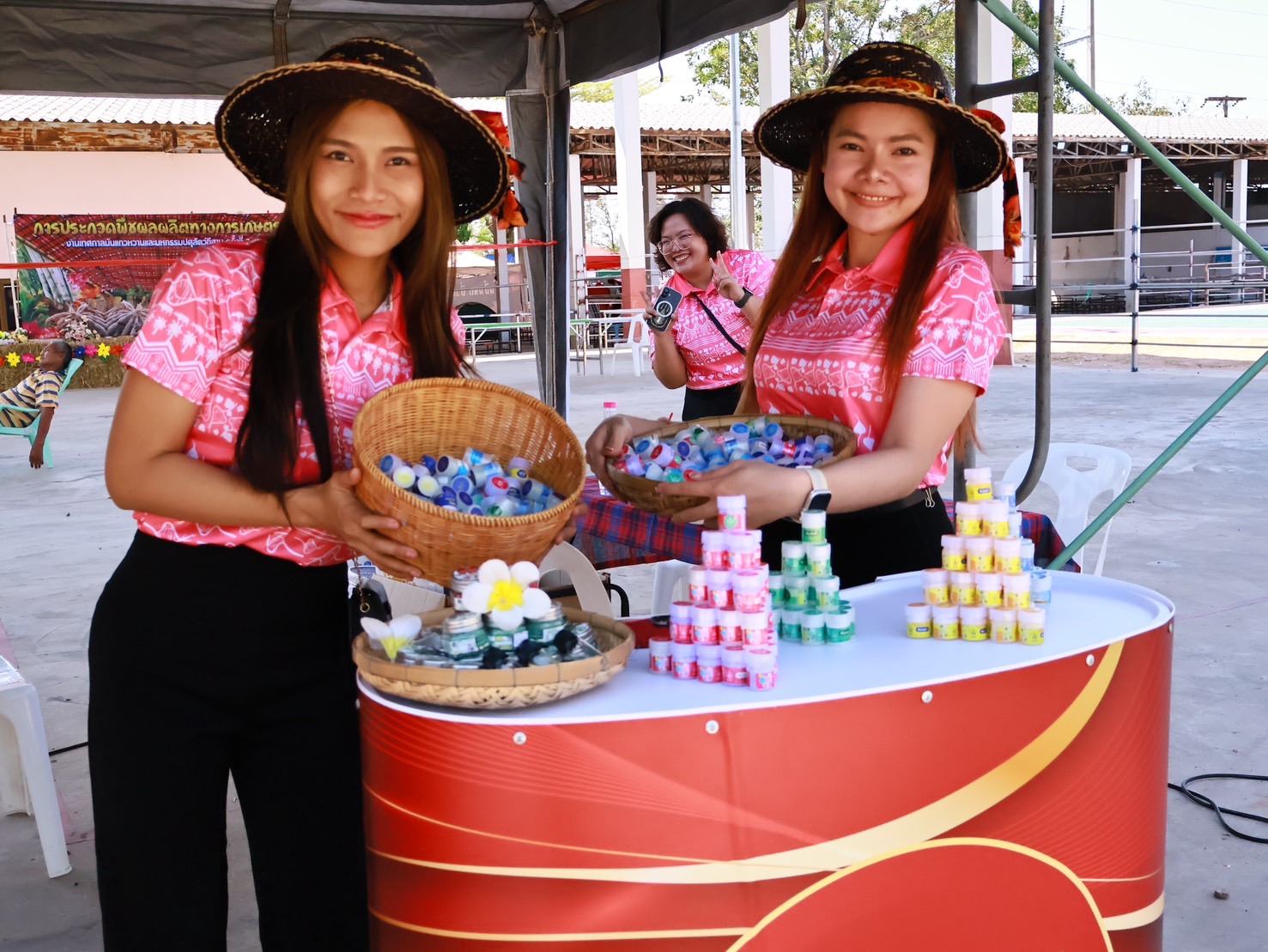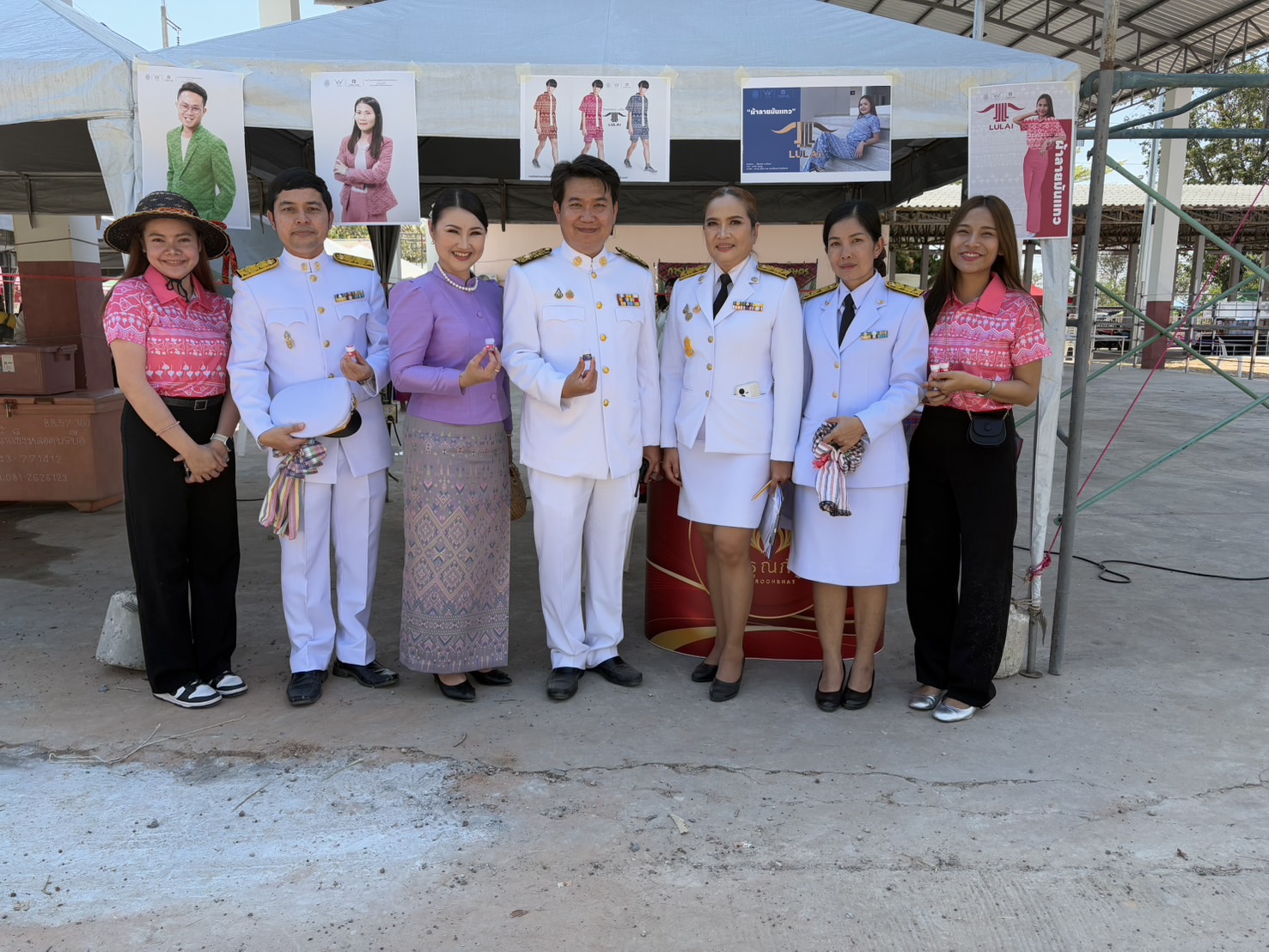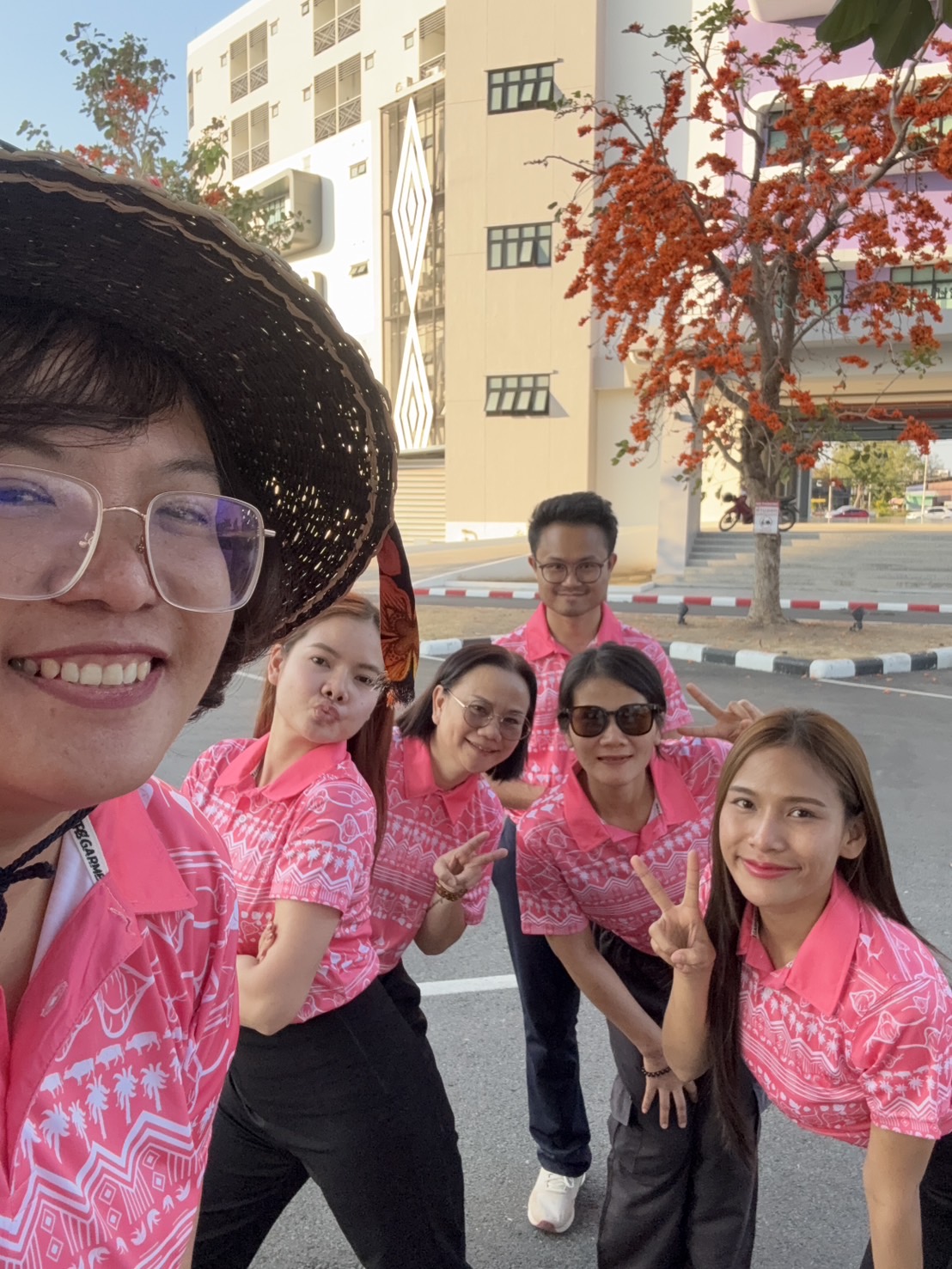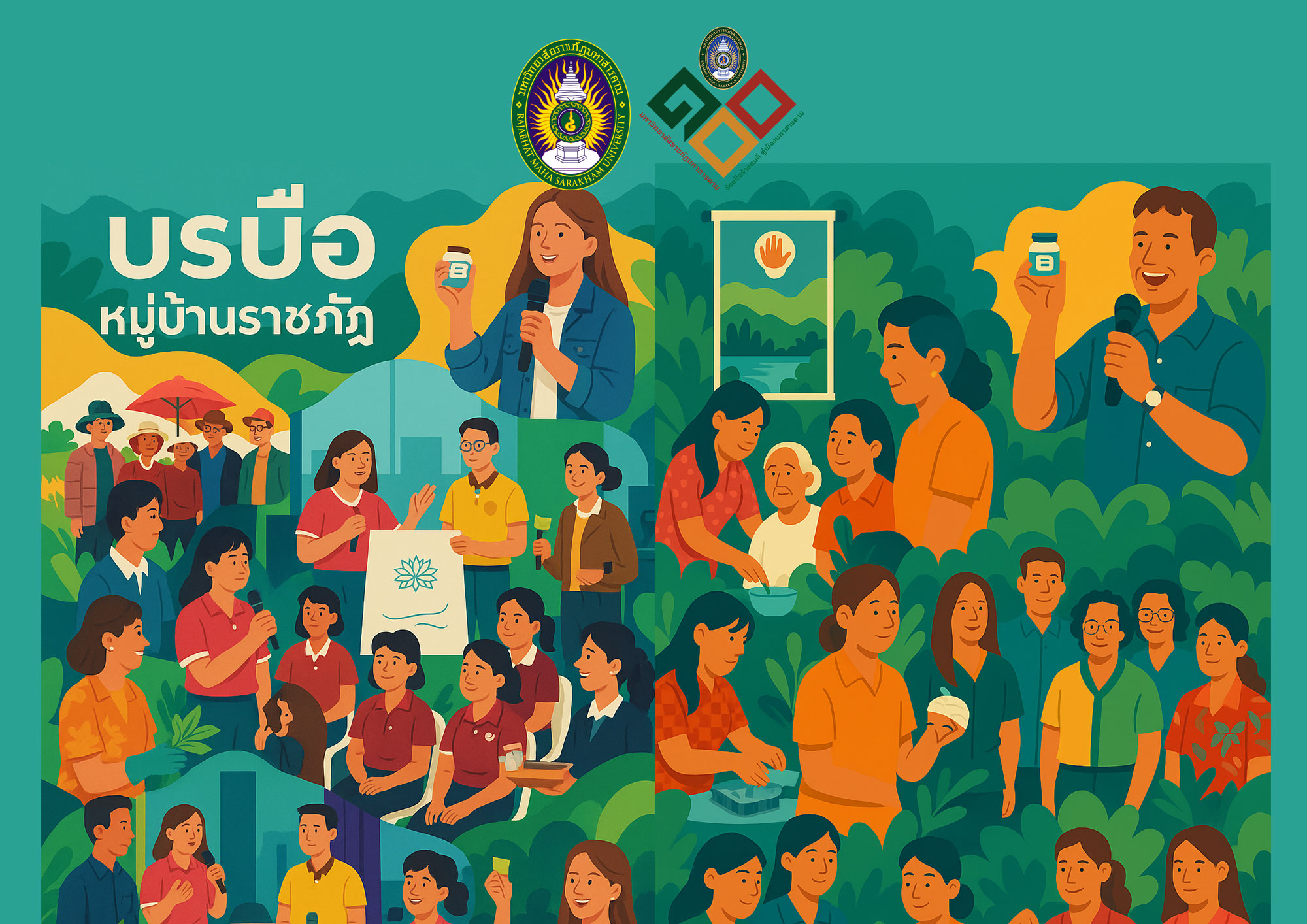
Borabue Community Development: A Rajabhat University Initiative Driven by Local Knowledge
ผู้รับผิดชอบ ให้ข้อมูล : Asst. Prof. Dr. Potsirin Limpinan
SDG ที่เกี่ยวข้อง
เป้าหมายย่อย เป้าหมายย่อยความสอดคล้องกับยุทธศาสตร์มหาวิทยาลัย : พันธกิจสัมพันธ์เพื่อการพัฒนาท้องถิ่นอย่างสร้างสรรค
แหล่งงบประมาณ : งบประมาณแผ่นดิน
กลุ่มเป้าหมาย : ชุมชน
Project Implementation Area : 14 villages in Borabue District ตำบล Borabue อำเภอ Borabue จังหวัด Maha Sarakham 44130
Project Duration: January 1, 2025 – May 6, 2025
Objectives :
1. To develop Borabue Subdistrict as a model Rajabhat University village capable of self-sufficiency.
2. To transfer knowledge, innovations, and technologies from the university into practical community applications.
3. To enhance the skills and potential of community members in line with local needs and the current economy.
4. To establish a collaborative network among the university, community, and relevant agencies for local development.
5. To assess the satisfaction of training program participants.
Activities :
Activity 1: Community Leadership for Change through the Scout Process
Activity 2: Local Herbal Wisdom toward Health and Beauty Innovations: Revitalizing and Developing the Community Economy
Activity 3: Community Online Store: Transforming the Digital Economy
Activity 4: Monitoring, Evaluation, and Follow-up toward Sustainability
Number of project participants: 122 people
Project Budget: 400,000 Baht
Results :
1. Produced six herbal products
2. Created ten online stores
3. Gross Village Happiness (GVH) average score: 4.3
4. Satisfaction average score: 4.41
Results society :
The project helped generate additional income through the development of herbal products and online stores, strengthening the community, fostering unity, and preserving local wisdom. It also established a collaborative network among 14 villages.
Participation :
University students and staff played key roles in planning, field implementation, knowledge transfer, and follow-up, fostering experiential learning (Work-Integrated Learning).
Project continuity :
Even after the project ended, the community continues to apply the knowledge and skills gained — such as producing herbal products and conducting online sales — with plans to further develop product standards and expand marketing channels.
Problems obstacles :
1. The products have not yet been certified by the FDA or Community Product Standards, limiting online sales.
2. The project duration was too short to generate clear and sustainable income.
3. There is a lack of marketing and distribution support
Improvement :
1. Support certification processes to enhance product credibility.
2. Strengthen both offline and online marketing strategies.
3. Establish a centralized distribution hub to reduce costs and increase competitiveness.
Suggestions :
Rajabhat Maha Sarakham University should continue to expand research and academic service projects based on real community engagement — supporting product development to the stage of establishing community enterprises or achieving product certification. Ongoing initiatives will help create a sustainable and long-term impact on the local area
